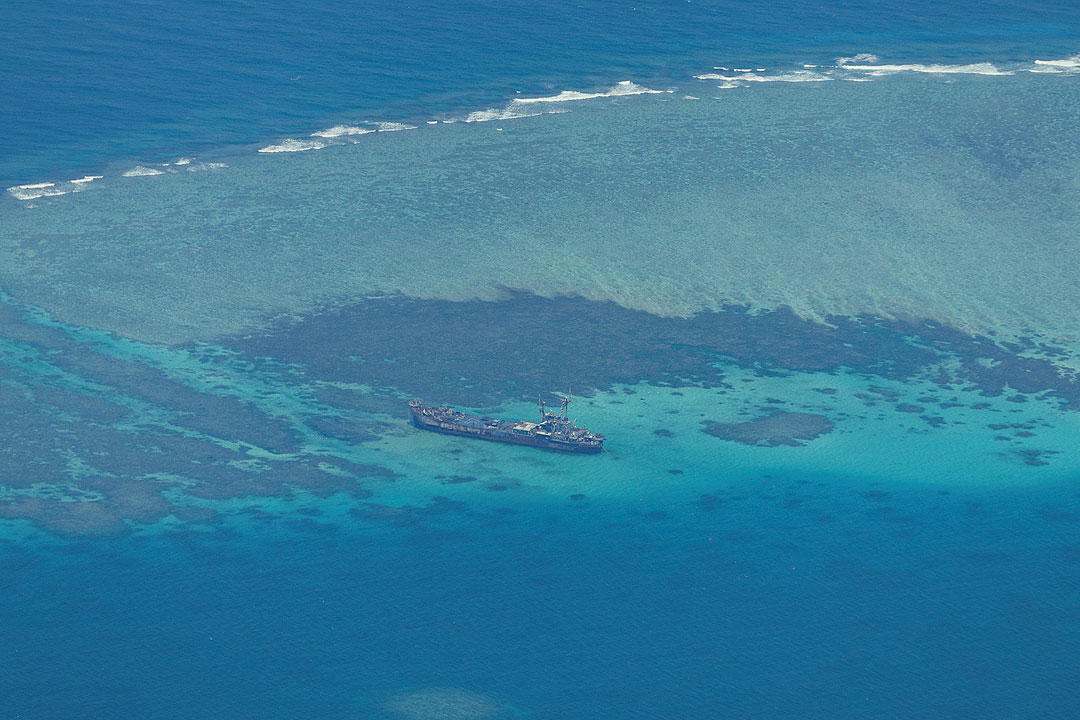PHL, China diplomats agree on friendly talks

By Kyle Aristophere T. Atienza, Reporter
THE PHILIPPINES and China have agreed to address their disputes over the South China Sea through friendly talks and cooperation on marine research, top-level diplomats of both countries who met in Shanghai revealed.
Philippine Foreign Affairs Undersecretary Ma. Theresa P. Lazaro and Chinese Assistant Foreign Minister Nong Rong met at the 8th Philippines-China Bilateral Consultation Mechanism on the South China Sea on Tuesday amid increasing conflict that reached new heights following Manila’s recognition of Taiwan’s new leader.
In the past year, the Asian neighbors endured intense confrontations mainly triggered by Beijing’s water cannon attacks and dangerous maneuvers that have placed Filipino vessels at risk in parts of the disputed waters closest to the Philippines.
Releasing a statement on the Shanghai consultations, the Philippine Department of Foreign Affairs (DFA) said Ms. Lazaro and Mr. Nong “had frank and productive discussions to de-escalate the situation in the South China Sea and both sides agreed to calmly deal with incidents, if any, through diplomacy.
The two countries agreed to improve a so-called maritime communication mechanism, which includes “communications between foreign ministries and coast guards of the two countries.”
“Continuous dialogue is important to keep peace and stability at sea,” the DFA said.
Their talks also focused on Second Thomas Shoal — where worn-down Philippine Navy ship BRP Sierra Madre has been grounded since the 1990s, following China’s seizure of Mischief Reef — and “assured each other of their mutual commitment to avoid escalation of tensions.”
The shoal has been a major source of friction between the two countries, with the Chinese Coast Guard blocking Philippine resupply missions for troops stationed on the rusting vessel through the use of water cannons and dangerous maneuvers at sea.
The two countries also agreed on “possible academic exchanges on marine scientific research.”
“China has always opted for a bilateral talk but there should be a prerequisite: There must be a commitment to respect rules-based mechanisms such as the UNCLOS (United Nations Convention on the Law of the Sea) and the arbitral ruling in 2016,” Antonio P. Contreras, a political analyst at the University of the Philippines Los Baños, said in a phone call.
“There should be a commitment to respect global institutions.”
Relying on China’s push to address the issue at the bilateral level may only give Beijing room to expand its illegal claims, Mr. Contreras warned.
Pursuing cooperation on marine research would be an important step to keeping the two countries’ ties amid their tensions at sea, Philip Arnold “Randy” P. Tuaño, dean of the Ateneo School of Government, said in a Facebook Messenger chat.
Addressing common challenges such as the impacts of climate change on the South China Sea and threats to marine biodiversity conservation and sustainable fisheries management could “contribute to the development of sustainable policies that benefit both nations, thereby reducing potential sources of tension.” However, it is essential to recognize that scientific cooperation alone may not completely resolve political or military disputes, Mr. Tuaño noted.
“It should be part of a broader diplomatic strategy that includes political dialogue, conflict resolution mechanisms, and adherence to international laws and agreements.”
CHINA ENVOY TO MANILA SEES TIES AT A CROSSROADS
Ties between the two countries continue to sour due to their disputes at sea, and Chinese Ambassador to the Philippines Huang Xilian on Wednesday said the two countries’ relations now “stand at a crossroads.”
The Philippines should “steer a right course for its relations with China,” he said in a speech in a year-end party with media workers, days after Mr. Marcos congratulated Taiwan President-elect William Lai Ching-te and expressed willingness to boost ties with the self-ruled island, which has governed independently of China since the 1940s.
Mr. Marcos’ remarks prompted the Chinese government to summon the ambassador from the Philippines, with Beijing warning Manila “not to play with fire.”
The Chinese envoy to Manila urged the Philippines to “work together with China to bring bilateral relations back on the right track as soon as possible.”
The two countries are linked by “a strip of water and have been friendly for thousands of years,” he said.
“First of all, it is not ‘a strip of water’ that separates the Philippines and China,” said Jay L. Batongbacal of the University of the Philippines Institute for Maritime Affairs and Law, reacting to Mr. Huang’s demands.
“This is an underhanded attempt to deny the Philippines’ 200-nautical mile exclusive economic zone and continental shelf areas and high seas that separate the two countries,” he said in a Viber message.
Mr. Batongbacal reminded China that respect goes both ways and is earned and mutually given, “not demanded by one from the other.”
“If China treats the Philippines with respect then the Philippines will likewise treat China with respect,” he said. “China has not done so for years now.”
The Philippines should continue to pursue its national interests and not defer to China’s demand.
Trade deficit between the Philippines and China hit $15.25 billion in 2021 with Manila on the losing end. Manila only exported $11.55 billion worth of products to China in that year, but imported $26.8 billion worth of goods from Asia’s largest market.
In November 2023, China was the Philippines’ largest source of imports valued at $2.72 billion, according to data from the Philippine Statistics Authority.
But the United States, not China, was the largest buyer of Philippine exports in the same month, accounting for $970.22 million or 15.8% of the country’s export value.
Despite their increasing tensions, economic ties with Beijing may still be “business as usual because China also needs continuing economic activity with other nations for its most important exports, such as the electric vehicles,” Terry L. Ridon, a public investment analyst, said in a Facebook Messenger chat.
“On infrastructure, Beijing has failed to deliver on much of its infrastructure commitments anyway, such that any further pause will be insignificant,” he added. “These commitments may also be undertaken by other development partners in the future.”



